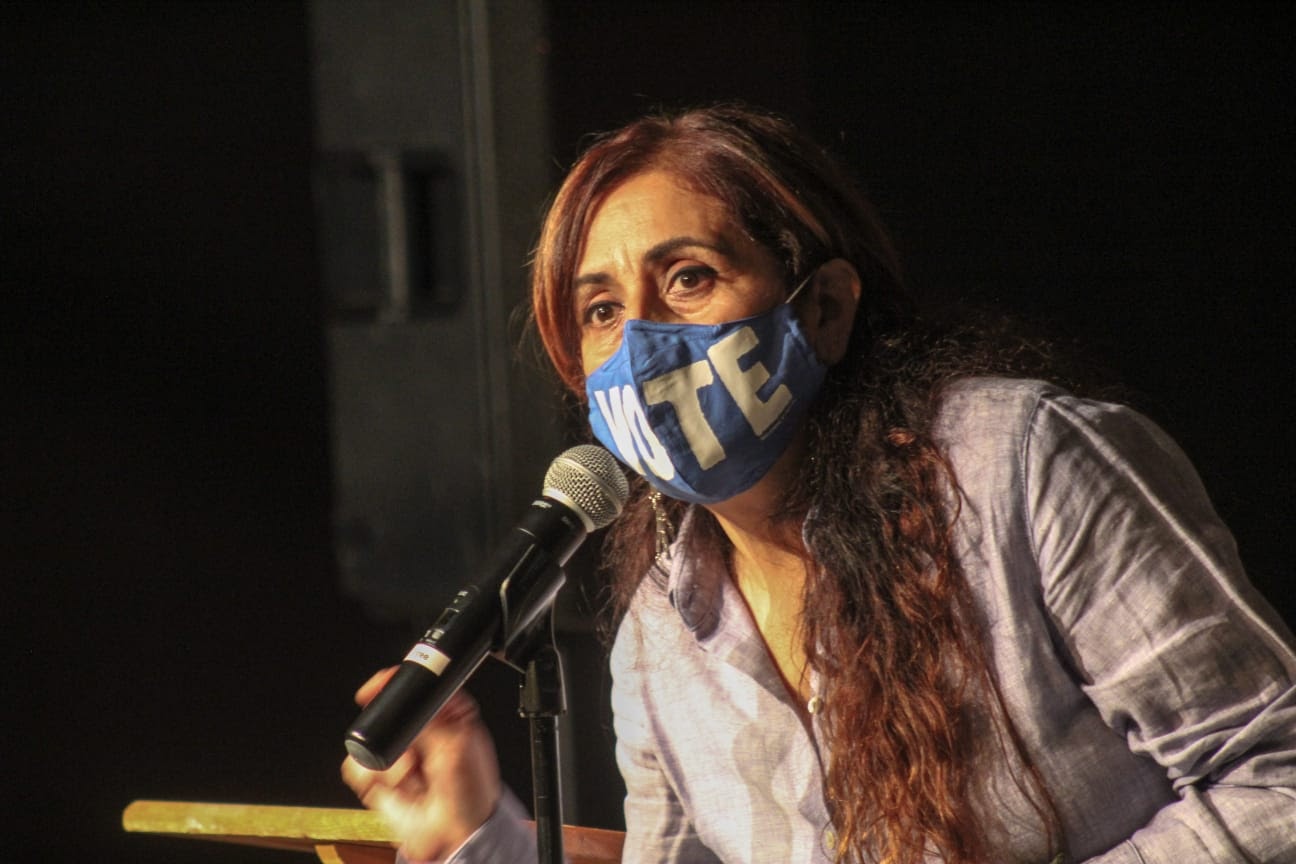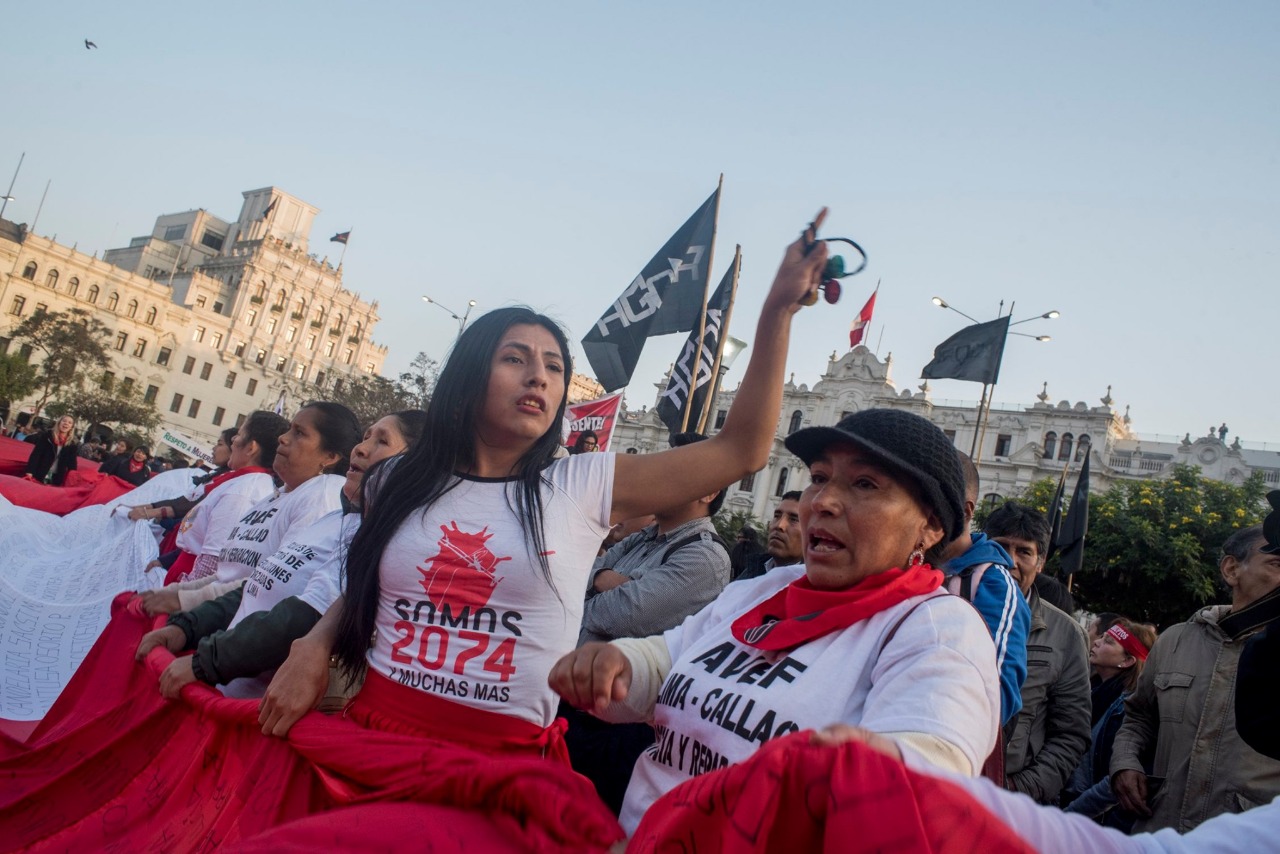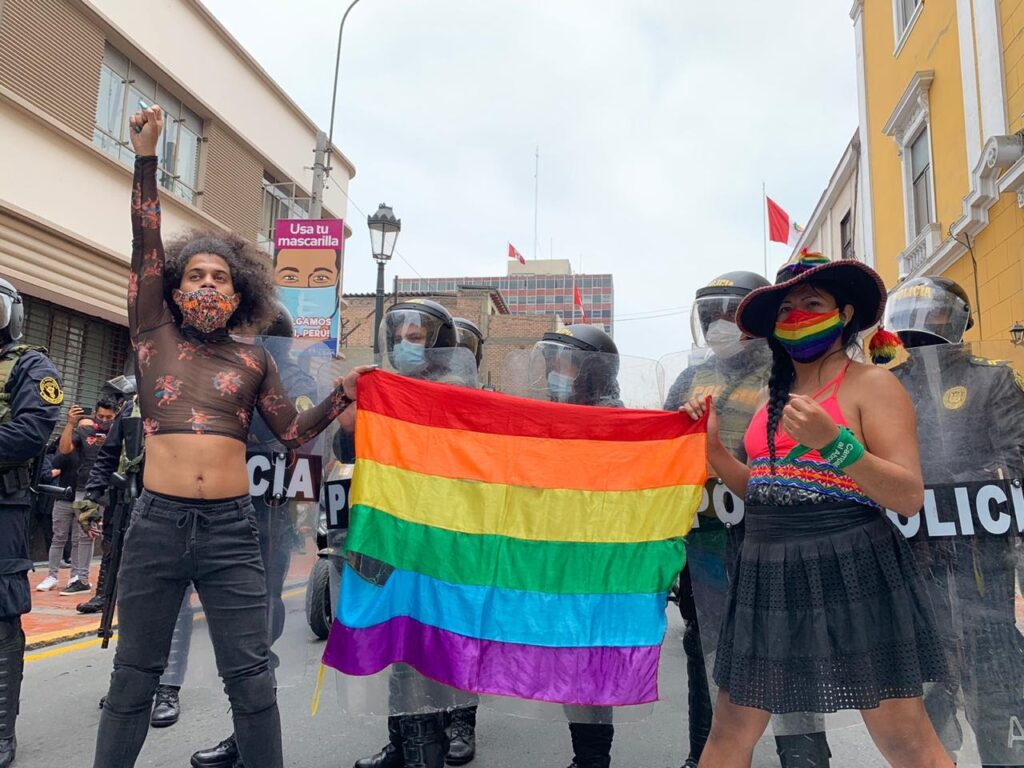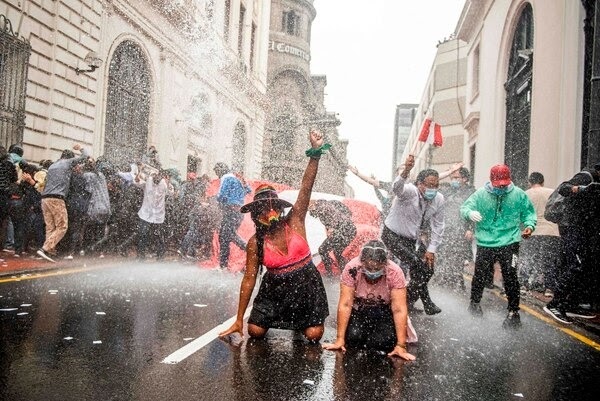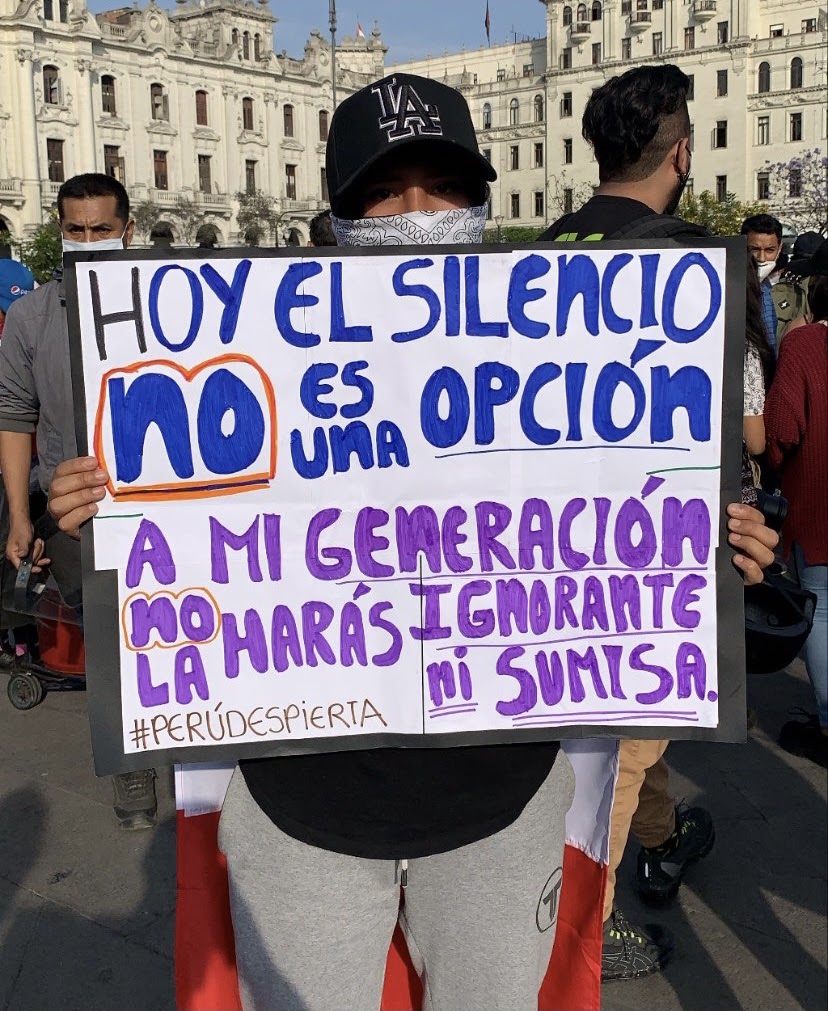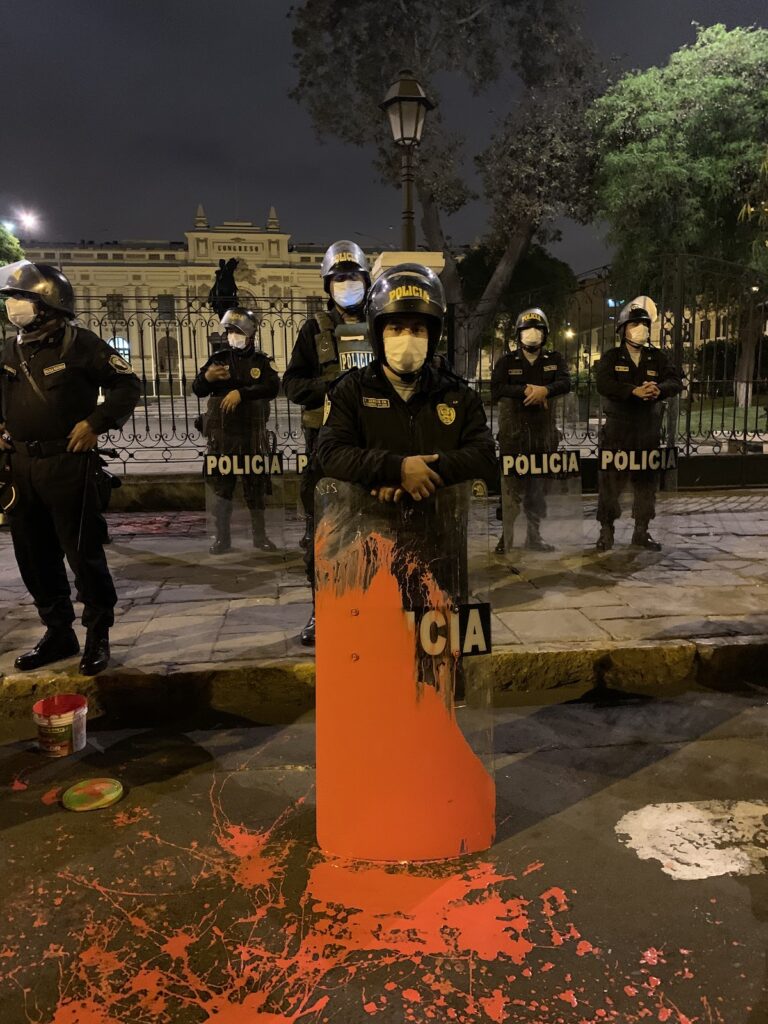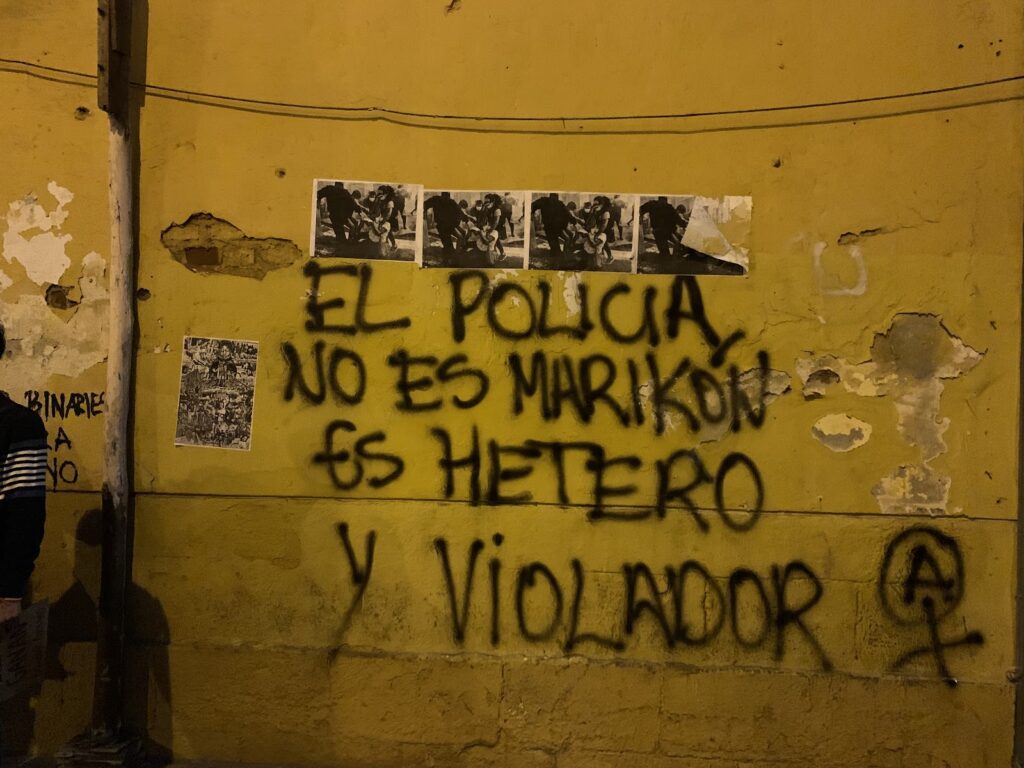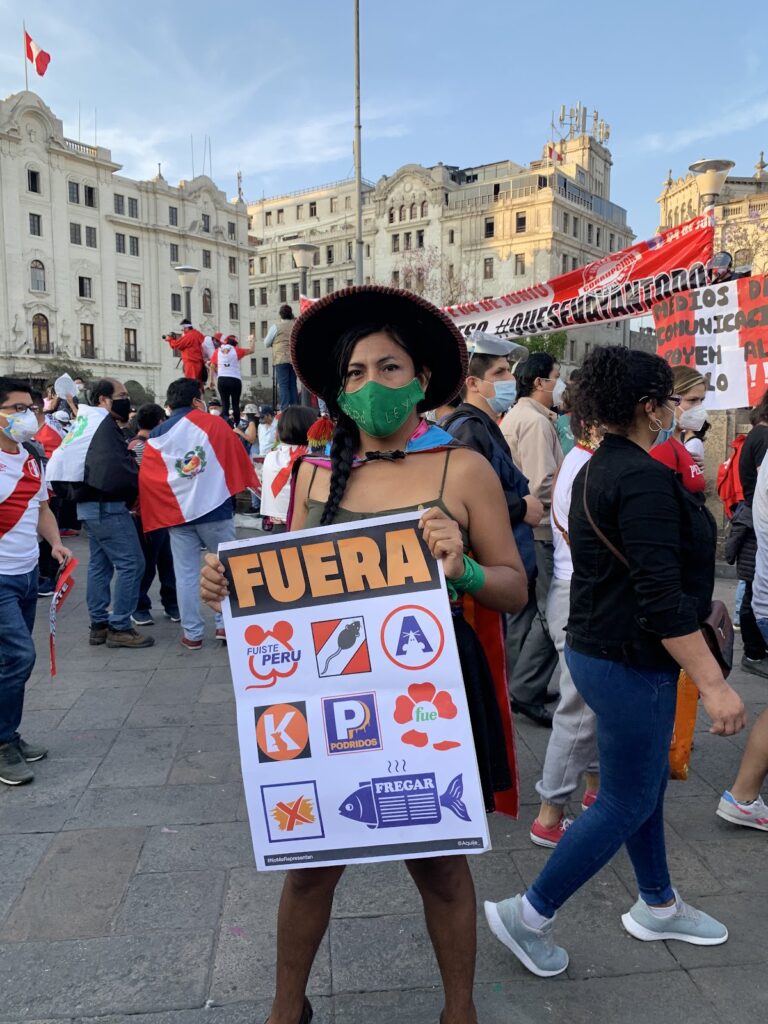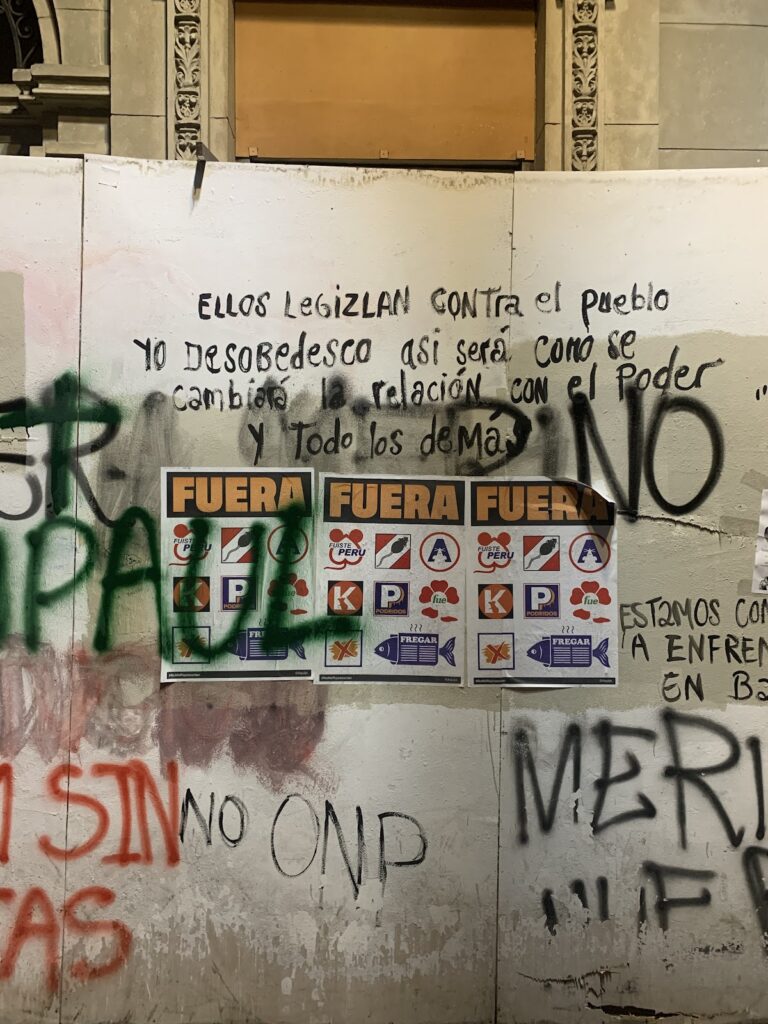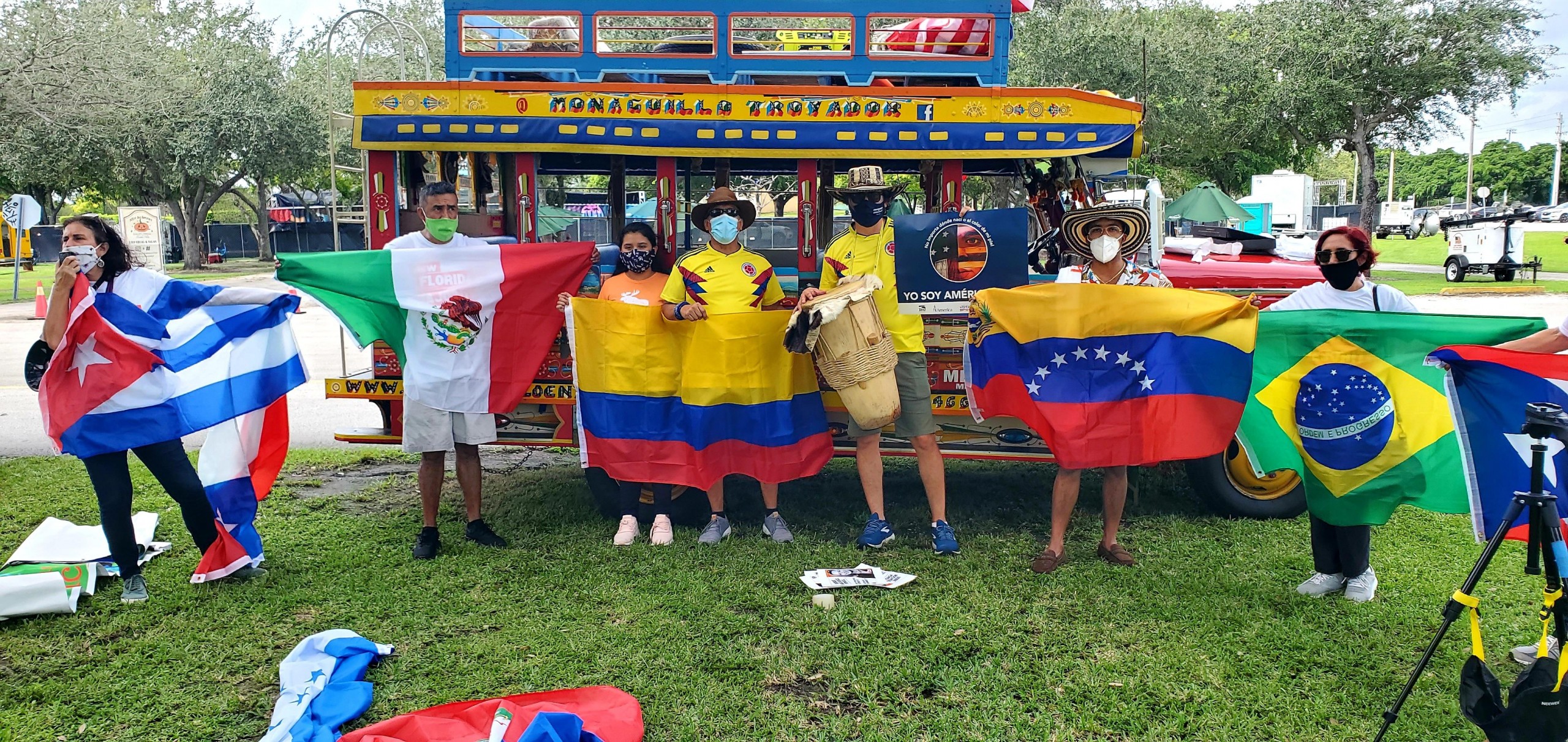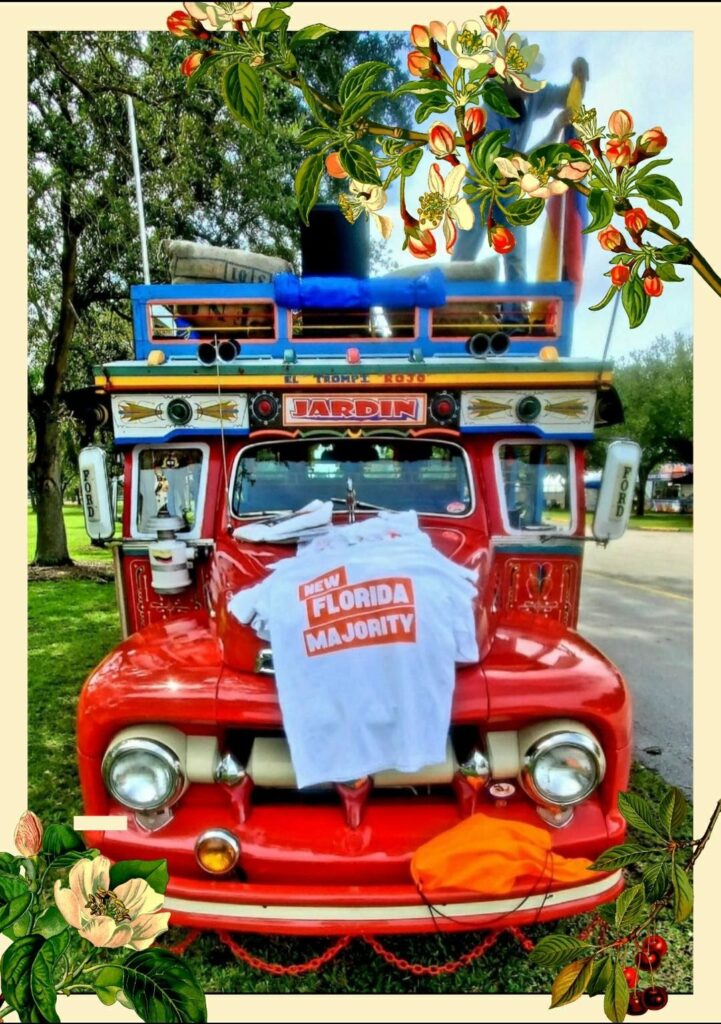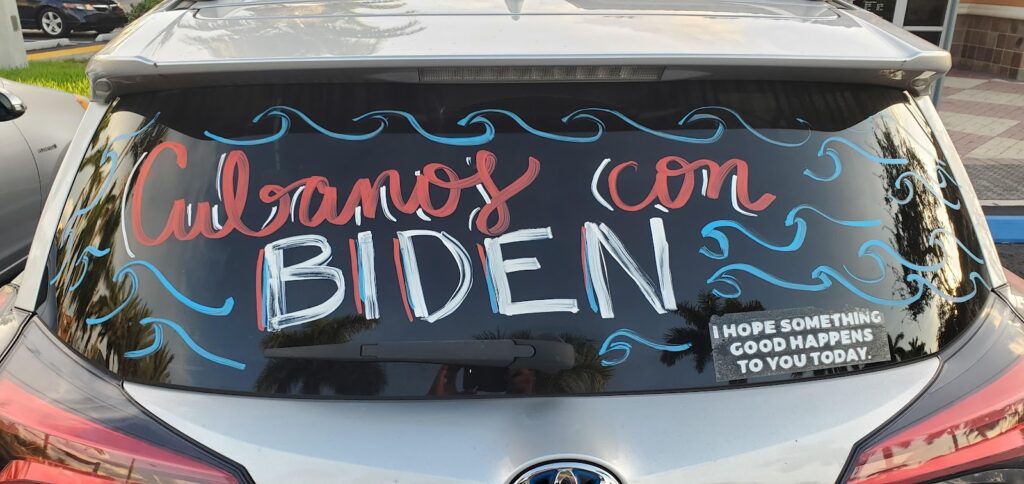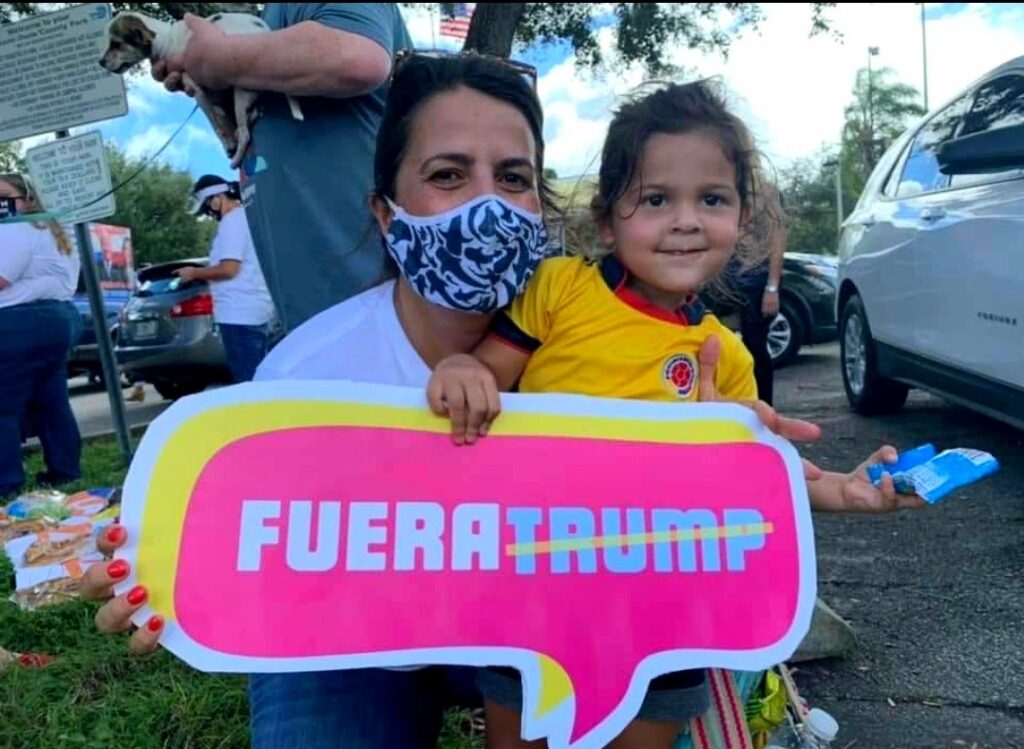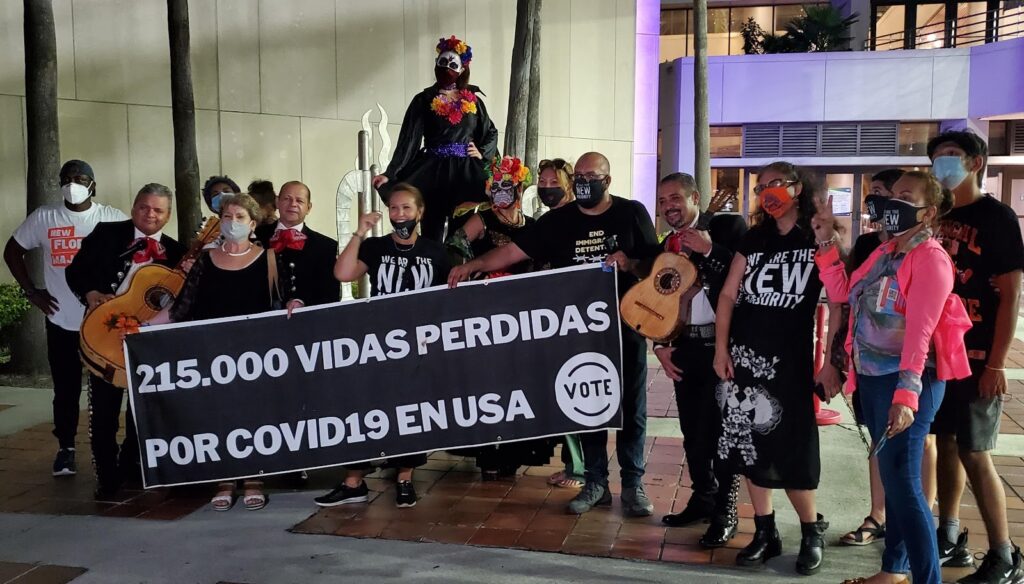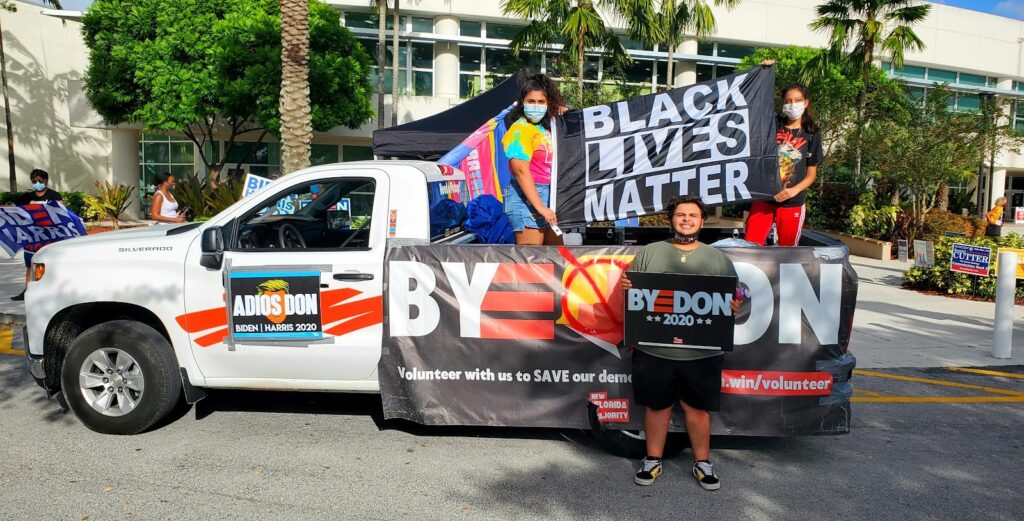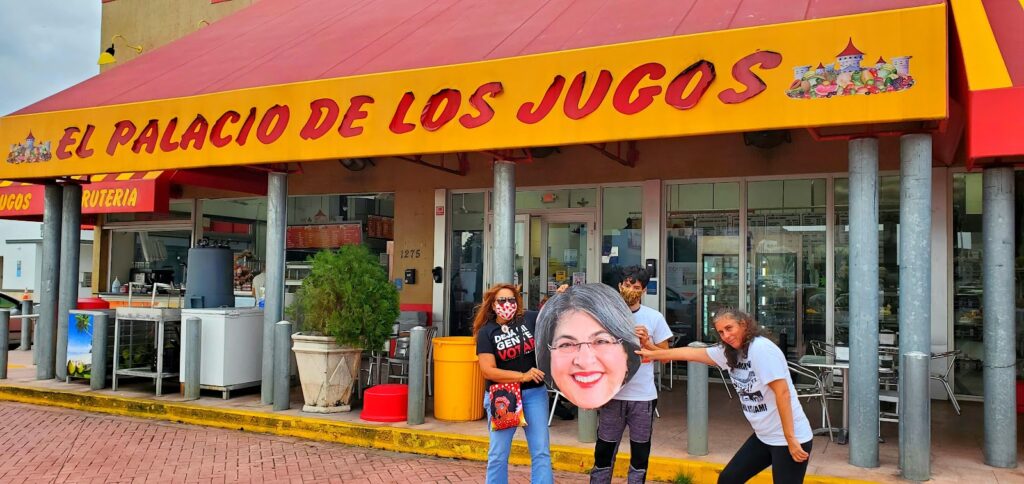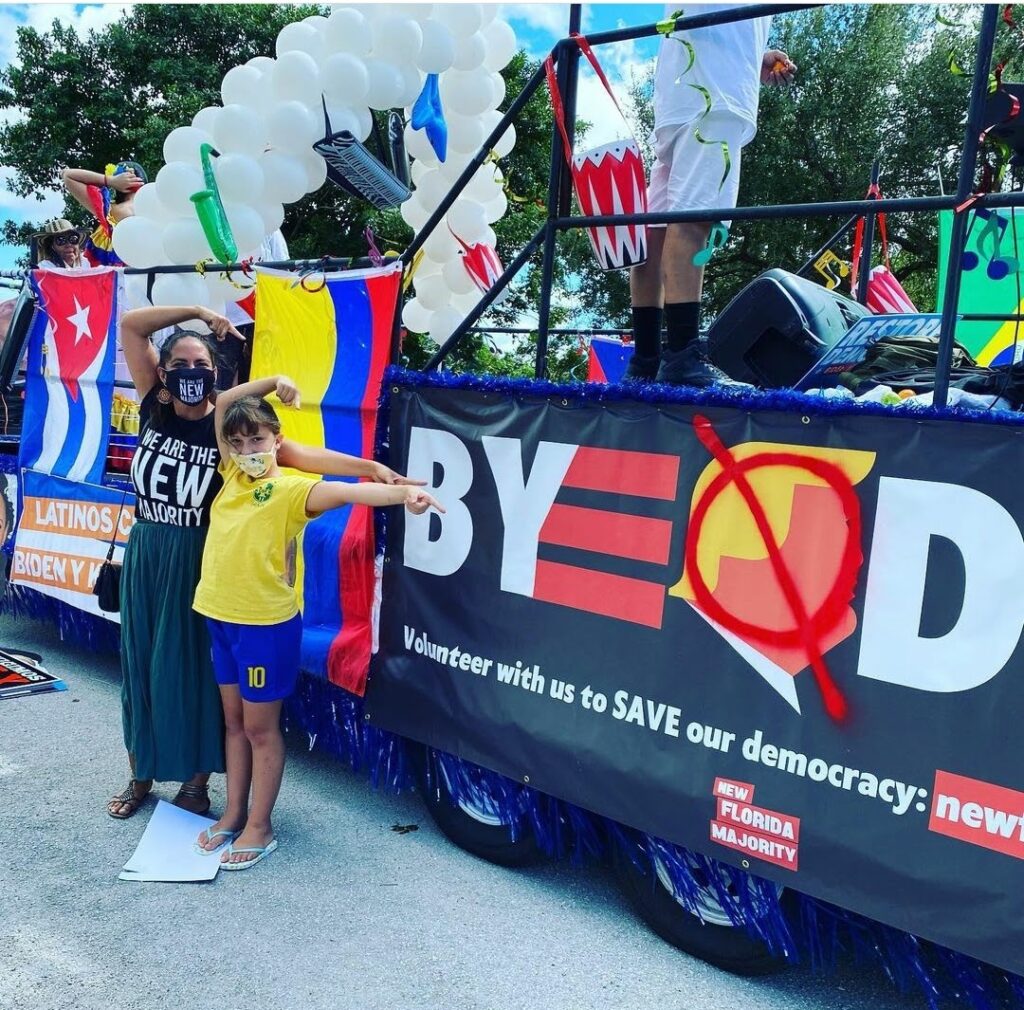Georgia emerged this year as the swing state nobody expected, not only resulting in a victory for President Biden, but also playing a pivotal role in the balance of power in the Senate with a Runoff election. In the middle of all this, we spoke to Adelina Nicholls, director of the Georgia Latino Alliance for Human Rights (GLAHR) and GLAHR Action Network, founding member of Mijente and a lifetime activist and community leader, about the political climate in Georgia, her own trajectory and what advice she has for other activists.
TRAJECTORY
“I’m stubborn. You know? Very rebellious,” says Adelina through the computer screen when I ask how she would describe herself. “And to a large extent that is reflected in my organizing work. I have never belonged to any party.”
Adelina shares that her non-submissive spirit carries through in her work as a community activist. Mexican by birth, Adelina arrived in the United States in 1996 without knowing much English.
“It has been an uphill struggle, learning English,” she says. “But something that helps me many times is that I am very daring, although it also gives me headaches.”
Adelina has been organizing for about 20 years and is a model for many Latinx young activists, especially in Georgia. She shares that her community started meeting in mid-1999 and from there started a driver’s license campaign for their undocumented community.
Known as Coordinadora de Lideres Comunitarios when they first started, they changed their name in 2007 to what we now know as the Georgia Latino Alliance for Human Rights, an organization that educates, organizes and trains the Latino community in Georgia to defend and promote their civil and human rights. Since 1999, Adelina was the coordinator and now is the executive director of GLAHR.
“We didn’t get driver’s licenses, but it was possible to meet a lot of people who were around the state, particularly in rural areas and get them involved,” she says. “Over time [they] created their own committees, [and now] they do their own local work in different capacities, at different levels.”
DRIVERS’ LICENSES
“The very first time I became aware of Adelina Nicholls was in 2003,” says Amanda Chavez Barnes, Digital and Data director at Mijente. “I was a highschool student, a kid with braces, paging with a state senator who was the first (and last until now) Latino state senator in Georgia.”
For her job as page, Amanda was at the state capitol, sitting on a little bench, waiting for lobbyists to come to pass her little pieces of paper for her to leave on the desk of the senator to have him vote a certain way. One week, while Amanda sat on that same bench, Adelina arrived with a busload of hundreds of Latinxs, of undocumented migrant workers, many farm workers from the rural south to protest for drivers licenses for undocumented immigrants.
“When I tell you I cannot describe how much my mind was blown,” says Amanda excitedly. At the time, Amanda was dealing with a racist history teacher who had told her class that “she would never go to Mexico because there was too many Mexicans there,” in addition to a series of hate crimes that had been happening in her community. A group of students at Amanda’s school would pretend to hire day laborers, (mostly Guatemalan and Mexican folks from Mayan communities), and take them to the abandoned cotton mill in town to beat them with lead pipes and sticks. According to Amanda, the local police refused to prosecute these violences as hate crimes, even though many people ended up in the hospital and there were dead bodies found. In fact in 2004, the Georgia Supreme Court unanimously threw out the state’s hate crime law.
“This was the world I was living in,” Amanda tells us. “And down at the state legislature, Adelina pulls up with more Mexicans than I had seen in one place in my entire life. And they are not scared, they are standing there saying that they don’t have papers, that they’re undocumented, and not only are they not scared, they are demanding drivers licenses.”
According to Adelina, the driver’s license issue has always been a priority issue for a lot of the community. They don’t have access to licenses because they don’t have social security. Most of the folks involved in these protests were Mexicans who were working in South Georgia and joined the driver’s license campaign. Adelina used to spend Friday afternoons, Saturdays and Sundays visiting the communities to get people to join.
“I’m not shy when I have to talk to people,” Adelina shares. “So I went to the stores, to the laundries, wherever they were.”
Amanda says that to this day she is still struck by the boldness of that action. “How visionary it was, how much it took for Ade to be able to organize that many people. Bringing them all the way from South Georgia to the State Capitol in this climate of just virulent hatred and violence against us, especially against anyone who they know is vulnerable, because of their immigration status.”
A DAY IN GEORGIA FOR ADELINA
“The thing about executive management…well I took it, because there was a need to do it,” says Adelina on our morning zoom call, “but what I like is the organizational work in the communities.”
Right before my call with Adelina, she had just gotten back from canvassing in South Georgia for three days in preparation for the Senator elections in January. There is work every day, 24 hours a day. There’s a lot to do and Adelina is often the first one at the office and the last one to leave.
“There is also work on Saturdays and Sundays,” says Adelina, sharing how these are often days when they go out to the streets, to look for and talk to people.
“We are not waiting for people to come. If not, then forget it!” she says laughing. “I would have already grown branches here, right?”
In Georgia the cops are running behind Latinx communities all the time. Adelina shares with us that the women really are the heroes, the ones who rescue the family, the ones that decide to organize in order to continue. They are also the ones often struggling most due to the extensive amount of men (their husbands or partners) detained by the local police. It implies a serious problem for families.
“We know that this will have serious and profound repercussions. Right?” Adelina says. “For all that family separation means, it has implications that last a lifetime. It is something that is not being considered. Or at least, there are those who speak it, but not with the depth and care.”
Another obstacle is the amount of children in the community that have been taken by Child Protective Services (CPS). “Our women have to go to work and they sometimes leave their children with the neighbor. And unfortunately, it has been very costly to know that the law establishes things differently to our countries. CPS has taken many, many children, hundreds.”
YOUTH
“What we have seen for about three years is precisely the entry of an army of young children of undocumented immigrants,” says Adelina excitedly. There are many undocumented parents that as Adelina says often care less about their own status and focus more on their children’s.
“I think they are the real dreamers,” she says, “parents are the true dreamers thinking about a better future for their children.”
Adelina says it’s beautiful to see so many young people and that they are joining, and is excited and hopeful and seeing more Spanish speakers continue to build power in her state.
“I am sure that leadership has to be generated with younger people. So that’s part of the transition process that will take place at some point,” says Ade.
UPCOMING ELECTIONS
Earlier this year, Georgians voted out two sheriffs from the most aggressive counties with the 287G program, which allows local law enforcement to partner with ICE to find and report ‘unauthorized immigrants’. According to Adelina, between those two counties there was about 20% of deportations nationwide, in addition, they have been fighting against the 287G program for over 13 years.
Under the newly formed political arm of GLAHR, the 501c4 GLAHR Action Network, Adelina was one of the leaders of the “Take Action, Get Power” campaign, mobilizing against two Sheriffs in Gwinnett and Cobb County who had been pivotal at enforcing and promoting the 287g programs through the state. The campaign was done in partnership with SONG Power and Mijente PAC.
One of the sheriffs from the counties leading in 287G arrests was Lou Solis in Gwinnett County; “that’s a lesson for all of us that being Latino doesn’t necessarily come with a collective conscience to help your own community or be sensitive to the demands of your community,” says Adelina, about Lou Solis’ track record.
In November, Georgians elected the first Black Sheriffs in the history of the State. “It is a great victory for our community. However, we all know that the fight is not over.”
In January, Georgians will vote for two positions of Senators for the United States Congress. “And what does it mean for us Latinos? Well, it has a tremendous and profound meaning,” says Adelina, “because if you have a majority in the Senate, the possibilities of generating the deepest, most lasting changes for our community grow. Although that is not a guarantee.”
Latinxs in Georgia with the support of Mijente are rallying around the two democratic candidates Jon Osoff and Reverend Raphael Warnock. The main goal of the “Georgia Con Ganas” campaign is to reach every Latinx voter in the state to vote out the Republican Senators who have been profiting from the pandemic and and help get a Democratic majority in the U.S. Senate. It is a difficult battle against a deeply organized Republican force; even millionaire Republicans on Wall Street have donated billions to protect the seats of current Georgian Republican Senators David Perdue and Kelly Loeffler.
“We believe that this is a moment of opportunity that we can take to push our demands and we believe that there is a very small space, so if the door opens even a little, we go through there!” says Adelina referring to the rallying around Democratic Senator candidates. “Contrary to the previous administration, where everything, doors, windows, everything was closed and sealed and there was no passage.”
“Hopefully, as we say here, ‘los reyes magos bring us the surprise of victory’ on January 5, which is the day of the elections.”
ADVICE
Adelina has 20+ years of organizing experience up her sleeve and with that comes a lot of lessons. I asked her to share some advice to newer organizers who might already be experiencing exhaustion and hopelessness.
“When we are activists, we are working for many people, but sometimes we forget about ourselves. Having a space for me to go to therapy, to fix the internal allows me to offer the best of myself,” she says. Adelina has learned that when she is irritable it is because there is something inside her that she needs to attend to, and is this way be able to give time and care to herself while doing all that she does.
“Number 2, is that the word ‘I’ generally ceases to exist and becomes the ‘we’. And not creating a separation between ‘me’ and the ‘people’, or with ‘us’ and people. ‘We’ ARE the people.”
“Number 3, I know people here who don’t eat in the morning, who don’t eat until 4 or 5 in the afternoon. Have something for breakfast, eat something! I mean, nothing will happen if you spend half an hour eating.” Adelina tells us that it is something she has fought for a lot at GLAHR; at twelve o’clock everyday, whatever it is they are doing, they have to stop and eat. “At twelve I’m already bothering everyone, ‘come and eat now’, or ‘are we going to eat?’ or ‘what are we going to eat? So that’s it, at noon is food.”
“Look, it’s as simple as taking a deep breath, taking the air out through your mouth, but daily giving it space to breathe deeply and knowing that you are here and that you belong here,” says Adelina, who has created that space for herself by going to therapy for the last 15 years. “If it were for me, I would tell everyone to go to therapy. It is important for the well-being of the movement, for the health of the movement.”
“We already have so much work, so much pain, so much suffering out there. So how can we ease? I think this is a small and deep way to be able to improve ourselves in order to improve the movement. And I believe that each of us must find a space for ourselves.”
xime izquierdo ugaz (they/them) is a multimedia artist with roots in the andean & amazonian regions of Perú. A curator, educator, & language justice worker; their work primarily touches on intergenerational trauma passed down in relationship to place & migration. Their work has appeared in PEN America, SOMA, El Museo del Barrio and Lambda Literary. Their first chapbook is titled Estoy Tristeza (No, Dear Magazine & Small Anchor Press, 2018). You can find them @huacatayy for fundraisers for trans BIPOC, poems, portraits of queer fam and their life in Lima, Perú with their cat, Ocean.
